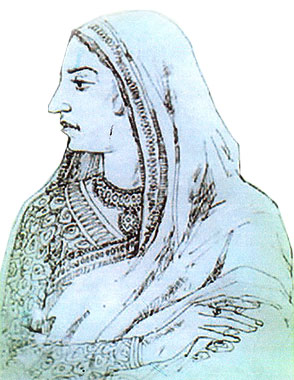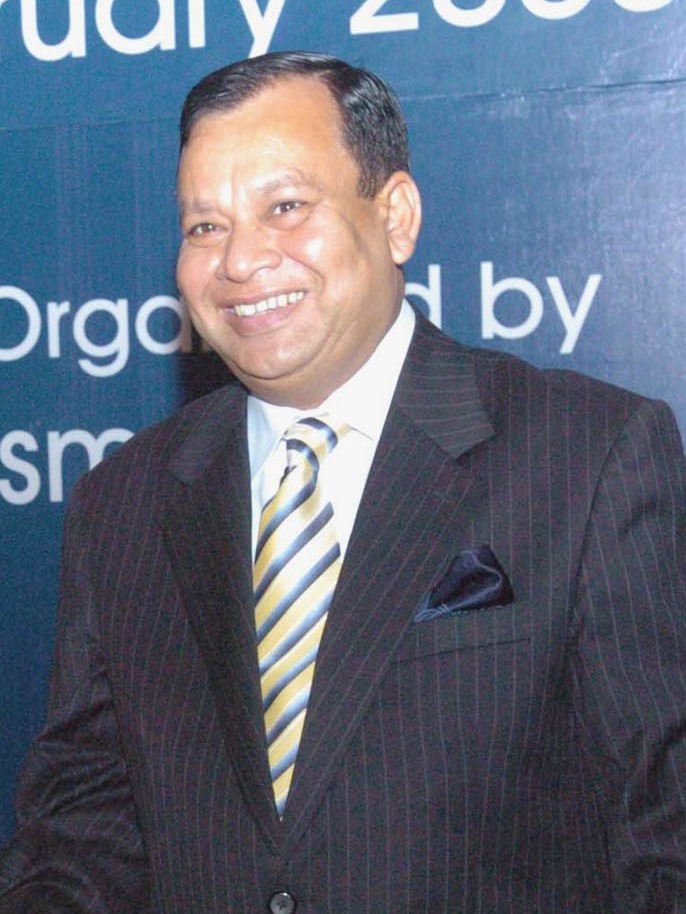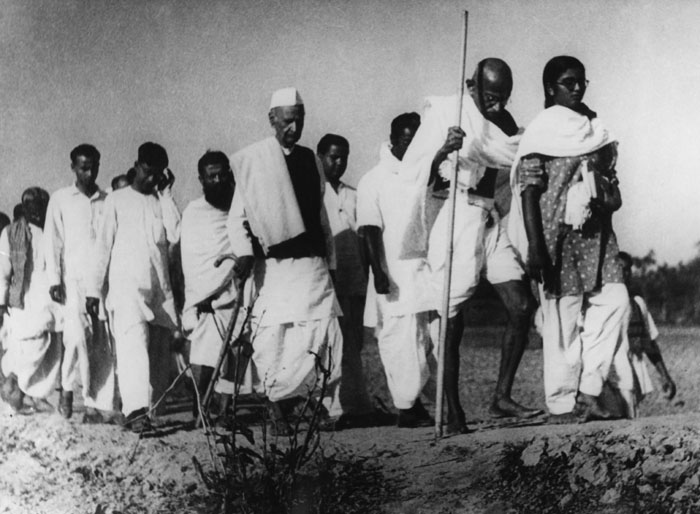|
Mahmudunnabi Chowdhury
Mahmudunnabi Chowdhury (; 7 January 1908 – 6 August 1995) was a Bangladeshi politician, businessman and former minister. He was one of the founders of the Chittagong Chamber of Commerce. Chowdhury contested as a United Front candidate for the Double Mooring-Sitakunda constituency at the 1954 East Bengal Legislative Assembly election. After being elected as a member, he served as the Minister for Mass Communication, and then as the Minister for Relief and Rehabilitation. Early life and education Chowdhury was born on 7 January 1908 to a Bengali family of Muslim Chowdhuries in the Nazir Bari of North Kattali, Pahartali in the Chittagong District of the Bengal Presidency. He was the son of Khadem Ali Chowdhury and Begum Alfunnesa. Chowdhury completed his matriculation from the Government Muslim High School in 1930. He passed his ISC from Chittagong College in 1932, and received his Bachelor of Science degree from the same college in 1934. Career Chowdhury began his career i ... [...More Info...] [...Related Items...] OR: [Wikipedia] [Google] [Baidu] [Amazon] |
East Pakistan Legislative Assembly
The East Pakistan Provincial Assembly, known as the East Bengal Legislative Assembly between 1947 and 1955, was the provincial legislature of East Pakistan between 1947 and 1971. It was known as the East Bengal Assembly from 1947 to 1955 when the provincial name was changed. The legislature was a successor to the Bengal Legislative Council and the Bengal Legislative Assembly, which were divided between East Bengal and West Bengal during the partition of Bengal in 1947. It was the largest provincial legislature in Pakistan. Elections were held only twice in 1954 and 1970. During the Bangladesh War of Independence in 1971, most Bengali members elected to the Pakistani National Assembly and the East Pakistani provincial assembly became members of the Constituent Assembly of Bangladesh. History Partition of Bengal On 20 June 1947, 141 East Bengali legislators from the Bengal Legislative Assembly voted on the partition of Bengal, with 107 supporting joining Pakistan's Constituent ... [...More Info...] [...Related Items...] OR: [Wikipedia] [Google] [Baidu] [Amazon] |
Chowdhury
Chowdhury (also: Choudhuri, Chaudhuri, Choudhury, Chaudhri, Chaudhary) is a title of honour, usually hereditary, originating from the Indian subcontinent. It is an adaption from Sanskrit. During the Mughal rule, it was a title awarded to eminent people, while during British rule, the term was associated with zamindars and social leaders. The common female equivalent was Chowdhurani. Meaning "Chowdhury" is a term adapted from the Sanskrit words ''čatus'' "four-way, all-round" and ''dhurīya'' "undertaking a burden", denoting the head of a community or caste. Significance It was a title awarded to persons of eminence, including both Muslims and Hindus, during the Mughal Empire. It was also used as a title by military commanders responsible for four separate forces, including the cavalry, navy, infantry and elephant corps. These people belonged to the zamindar families in British India. Later, the Mughal Empire, Mughals and the Nawabs conferred the same title in great numbers. ... [...More Info...] [...Related Items...] OR: [Wikipedia] [Google] [Baidu] [Amazon] |
1969 East Pakistan Mass Uprising
The 1969 East Pakistan mass uprising () was a democratic political uprising in East Pakistan. It was led by the students backed by various political parties such as the Awami League, National Awami Party, and Communist party of East Pakistan and their student wings, and the cultural fronts (writers, poets, musicians, singers, actors, etc) against Muhammad Ayub Khan, the president of Pakistan in protest of the oppressive military rule, political repressions, ''Agartala Conspiracy Case'' and the incarceration of Bangabandhu Sheikh Mujibur Rahman and other Bengali nationalists''.'' The uprising consisted of mass demonstrations and sporadic conflicts between government armed forces and the demonstrators. Although the unrest began in 1966 with the six point movement of Awami League, it got momentum at the beginning of 1969. It culminated in the resignation of Ayub Khan. The uprising also led to the withdrawal of the Agartala Conspiracy Case and acquittal of Sheikh Mujibur Rahman and ... [...More Info...] [...Related Items...] OR: [Wikipedia] [Google] [Baidu] [Amazon] |
Pakistan Democratic Movement
The Pakistan Democratic Movement (; PDM) was a coalition of List of political parties in Pakistan, political parties in Pakistan. It was founded in September 2020 as a political movement, opposition movement against Imran Khan, accusing his Imran Khan ministry, administration of poor governance, political victimization of opponents, and mismanaging the economy and foreign relations of Pakistan, foreign policy. Khan rebuked these allegations, during and after his tenure as Prime Minister The coalition was also joined by several dissident members of Khan's own party, Pakistan Tehreek-e-Insaf (PTI). On 10 April 2022, the coalition succeeded in ousting Khan through a no-confidence motion against Imran Khan, no-confidence motion, after which the PDM formed its own government, choosing the Leader of the Opposition (Pakistan), opposition leader Shehbaz Sharif as the country's next Prime Minister. The president of PDM was Fazal-ur-Rehman (politician), Fazal-ur-Rehman and its spoke ... [...More Info...] [...Related Items...] OR: [Wikipedia] [Google] [Baidu] [Amazon] |
National Democratic Front (Pakistan)
National Democratic Front was a Pakistani coalition founded in 4 October 1962. It was the first political alliance to oppose the military regime of Ayub Khan in Pakistan. History In 8 June 1962, the second constitution of Pakistan was promulgated by president Ayub Khan. In 4 October 1962, politician Huseyn Shaheed Suhrawardy Huseyn Shaheed Suhrawardy (8 September 18925 December 1963) was an East Pakistani barrister, politician and statesman who served as the Prime Minister of Pakistan from 1956 to 1957 and before that as the Prime Minister of Bengal from 1946 to ... formed a political alliance with opposition leaders from several political parties of Pakistan named National Democratic Front. The front stated that their goal was to bring democracy in the country as the constitution neglected democratic values. As of the Political Parties Act, politicians disqualified under Public Office Disqualification Order and Election Bodies Disqualification Order were barred from j ... [...More Info...] [...Related Items...] OR: [Wikipedia] [Google] [Baidu] [Amazon] |
Ayub Khan
Mohammad Ayub Khan (14 May 1907 – 19 April 1974) was a Pakistani military dictator who served as the second president of Pakistan from 1958 until his resignation on 1969. He was the first native commander-in-chief of the Pakistan Army, serving from 1951 to 1958. Khan rose to prominence after his 1958 coup d'état which ousted President Iskandar Ali Mirza, who had himself imposed martial law in the country. Ayub Khan's presidency ended in 1969 when he resigned amid the 1968–69 Pakistan revolution. Born in the North-West Frontier Province, Ayub Khan was educated from the Aligarh Muslim University and trained at the Royal Military College, Sandhurst. He fought in the Second World War on the British side against the Imperial Japanese Army. After the Partition of British India in August 1947, he joined the Pakistan Army and was posted in East Bengal. In 1951, he became the first native commander-in-chief, succeeding General Gracey. From 1953 to 1958, he served in the civilia ... [...More Info...] [...Related Items...] OR: [Wikipedia] [Google] [Baidu] [Amazon] |
1958 Pakistani Military Coup
The 1958 Pakistani military coup was the first military coup in Pakistan that took place on 27 October 1958. It resulted in the toppling of Iskander Ali Mirza, the president of Pakistan, by Muhammad Ayub Khan, the commander-in-chief of the Pakistan Army. On 7 October, Mirza abrogated the Constitution of Pakistan and declared martial law. There were a number of prime ministers between 1956 and 1958 and it reached a stage when General Ayub Khan felt the army should take control to restore stability. East Pakistan’s politicians wanted more say in the running of the central government, which increased tension. Iskander Mirza had lost the support of many of the leading politicians and was alarmed at a plan by Suhrawardy to unite the political leadership of Bengal and Punjab against him. Therefore he turned to Ayub Khan and the military for help. Pre-coup crisis The prelude to Ayub Khan's declaring martial law in Pakistan was fraught with political tension and sectarian politics ... [...More Info...] [...Related Items...] OR: [Wikipedia] [Google] [Baidu] [Amazon] |
Bangladesh Film Development Corporation
Bangladesh Film Development Corporation (BFDC) is a government owned and operated corporation in Tejgaon, Dhaka, Bangladesh. Nuzhat Yeasmin is the managing director of the corporation. History The organization was founded in 1959 as the East Pakistan Film Development Corporation which was changed to Bangladesh Film Development Corporation after Bangladesh achieved independence in 1971. It signed an agreement with National Film Development Corporation of India in 2016 to jointly produce a documentary on Bangladesh Liberation war. It has faced criticism on mismanagement and waste of public funds. On 3 April each year the National Film day of Bangladesh is observed, the day is organized and celebrated by the corporation. The day marks the occasion when Sheikh Mujibur Rahman Sheikh Mujibur Rahman (17 March 1920 – 15 August 1975), also known by the honorific Bangabandhu, was a Bangladeshi politician, revolutionary, statesman and activist who was the founding president o ... [...More Info...] [...Related Items...] OR: [Wikipedia] [Google] [Baidu] [Amazon] |
Chattogram City Corporation
Chattogram City Corporation (; abbreviated as CCC) is a local government, local governing body that administered all civic services in the Chattogram, the second largest city of Bangladesh. The CCC government is elected by popular vote every five years. It is headed by a mayor, who presides over 55 councillors. The City Corporation operates under provisions of . Administration The CCC is divided into 16 thanas: Akbarshah Thana, Akbarshah, Bakoliya Thana, Bakalia, Bandar Thana, Bandar, Bayazid Thana, Bayazid, Chandgaon Thana, Chandgaon, Double Mooring Thana, Double Mooring, Halishahar Thana, Halishahar, Khulshi Thana, Khulshi, Chittagong Kotwali Thana, Kotwali, Pahartali Thana, Pahartali, Panchlaish Thana, Panchlaish, Patenga Thana, Patenga, Chawkbazar Thana, Chawkbazar, Sadarghat, Chittagong, Sadarghat, EPZ Thana, EPZ, and Karnaphuli Thana, Karnaphuli. The thanas are subdivided into 41 wards and 211 Mahalla (Bangladesh), mahallas. The CCC also administers a portion of adjoinin ... [...More Info...] [...Related Items...] OR: [Wikipedia] [Google] [Baidu] [Amazon] |
Dewanhat, Chittagong
Dewanhat is a popular bazaar in Chittagong, Bangladesh. The name is an adjunct of the words Persian word "Dewan" (a high government ministry) and "hat" (bazaar). It belongs to Double Mooring police station in the west adjacent to Postarpar of the city. Earlier, a bazaar was held here twice a week. In the beginning, the market was big, but now its size is getting smaller. Now there are markets for pigeons and various birds with earthenware and clay pots. Also, daily morning labourers and masons wait here for work. History Posta was an important gateway to the medieval port city of Chittagong. The word Posta comes from the Persian Persian may refer to: * People and things from Iran, historically called ''Persia'' in the English language ** Persians, the majority ethnic group in Iran, not to be conflated with the Iranic peoples ** Persian language, an Iranian language of the ... word "pust" meaning reverse side or back side. This adjective is also used as a place name in Persian t ... [...More Info...] [...Related Items...] OR: [Wikipedia] [Google] [Baidu] [Amazon] |
Khatunganj
Khatunganj is an import-dependent wholesale market in Chittagong, Bangladesh. Retail traders from different parts of the country buy products from this market. It is also known as the "Wall Street of the East". Location It is situated in Chittagong, Bangladesh. On the three sides of the market, Chaktai, Rajakhali and Badarshah canals are flowing, whose source is the Karnaphuli River. History During the Delhi Sultanate, a wholesale business hub was set up in Shulkabhar and Chawkbazar in Chittagong in the 13th century. Basically, the market was set up in those areas for the purpose of wholesale business. Later, the wholesale market expanded to Khatunganj which increase the size of the market. Since the area is connected to the Karnaphuli River through the canals in the area and the area is located very close to the river, the traders later moved the market to this specific area for wholesale business. In the 1850s, Sheikh Mohammad Hamidullah Khan established a market there. A land ow ... [...More Info...] [...Related Items...] OR: [Wikipedia] [Google] [Baidu] [Amazon] |
Partition Of Bengal (1947)
The Partition of Bengal in 1947, also known as the Second Partition of Bengal, part of the Partition of India, divided the British Indian Bengal Province along the Radcliffe Line between the Dominion of India and the Dominion of Pakistan. The Bengali Hindu-majority West Bengal became a state of India, and the Bengali Muslim-majority East Bengal (now Bangladesh) became a province of Pakistan. On 20 June 1947, the Bengal Legislative Assembly met to decide the future of the Bengal Province, as between being a United Bengal within India or Pakistan or divided into East Bengal and West Bengal as the homelands for the Bengali Muslims and the Bengali Hindus, respectively. At the preliminary joint session, the assembly decided by 126–90 that if it remained united, it should join the new Constituent Assembly of Pakistan. Later, a separate meeting of legislators from West Bengal decided by 58–21 that the province should be partitioned and that West Bengal should join the existi ... [...More Info...] [...Related Items...] OR: [Wikipedia] [Google] [Baidu] [Amazon] |





